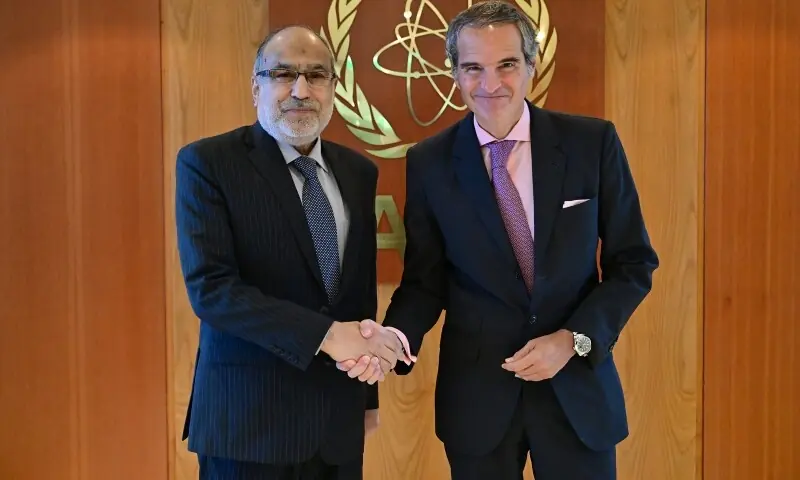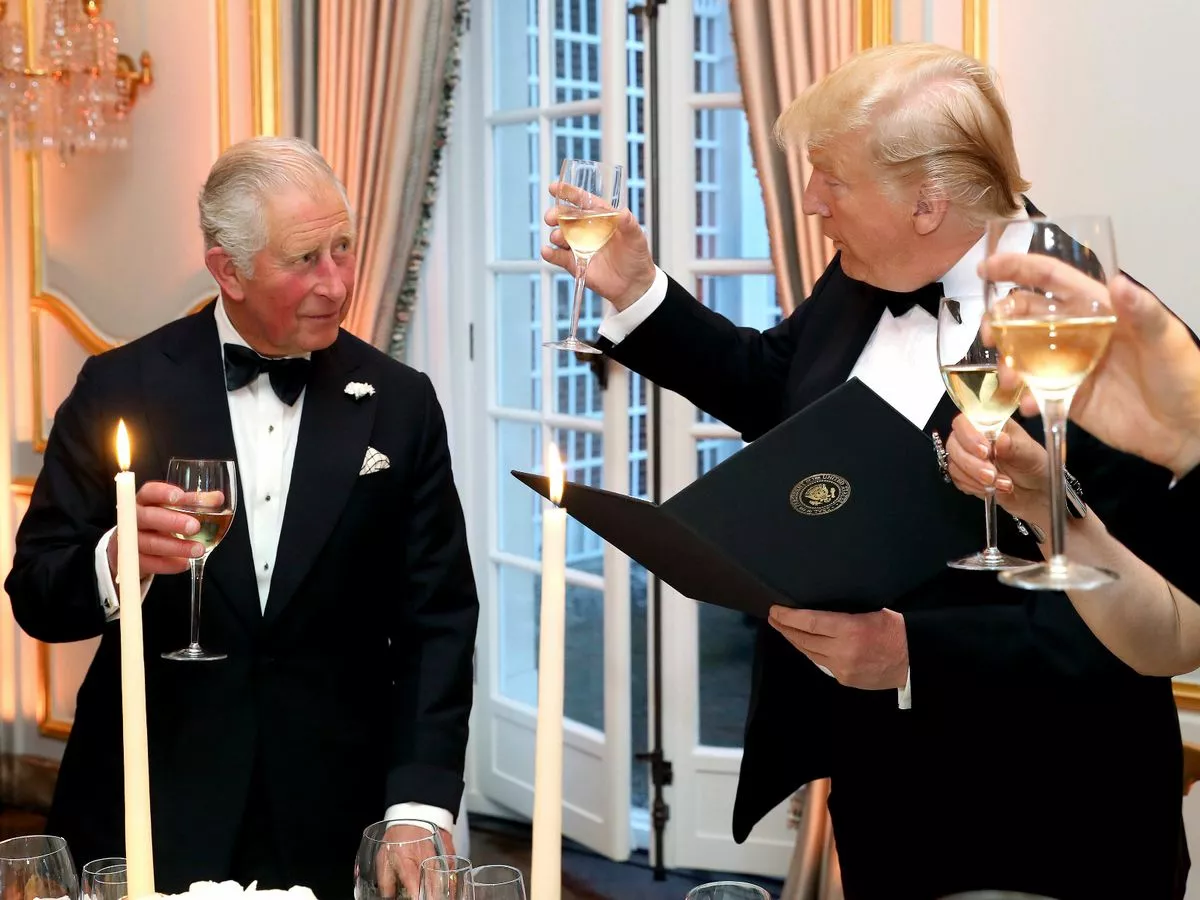By APP
Copyright dawn

The country’s nuclear programme has received recognition from the International Atomic Energy Agency (IAEA), in addition to Pakistan’s steady progress and close cooperation with the agency.
In a post on X following his meeting with Pakistan Atomic Energy Commission (PAEC) Chairman Raja Ali Raza Anwar on the sidelines of the 69th IAEA General Conference in Vienna, IAEA Director General Rafael Mariano Grossi highlighted Pakistan’s achievements in expanding its civil nuclear energy capacity.
He observed that Pakistan’s nuclear power programme was advancing “at a good pace”, particularly with the ongoing construction of Chashma Nuclear Power Plant Unit-5 (C-5).
Grossi recalled witnessing the first concrete pouring at the site in February, which he described as a “major milestone in Pakistan’s efforts to strengthen energy security through clean and sustainable nuclear power”.
The IAEA DG and PAEC chairman reviewed areas of cooperation under various agency initiatives.
These included Atoms4Food, which applies nuclear technology to improve crop yields, food safety and pest control, and Rays of Hope, which aims to expand access to nuclear medicine and radiotherapy for cancer care across the Asia-Pacific region.
Grossi appreciated Pakistan’s active engagement with the agency, especially in capacity-building, training, and the application of nuclear knowledge for socio-economic development.
He noted that Pakistan continued to serve as an important partner in the peaceful uses of nuclear science and technology.
The PAEC chairman reaffirmed Pakistan’s commitment to the peaceful applications of nuclear technology, in line with national development priorities and IAEA frameworks. He underlined that Pakistan’s nuclear power plants operated under the highest safety standards and contributed significantly to the energy mix by providing reliable, low-carbon electricity.
“The PAEC’s activities were closely aligned with the IAEA’s vision of promoting nuclear technology for peace, health, and prosperity,“Anwar added.
The meeting also provided an opportunity to discuss Pakistan’s contributions to regional initiatives under the IAEA, particularly in the Asia-Pacific, where Pakistani expertise in nuclear applications is being shared with other member states.
The Pakistani delegation reiterated the country’s resolve to continue working with the IAEA and member states in advancing peaceful nuclear cooperation, sustainable development and improved quality of life for people across the region.
Pakistan and the IAEA signed the fifth Country Programme Framework (CPF) for 2026-2031 on the sidelines of the IAEA General Conference on Wednesday.
The CPF 2026-2031 stands as a testament to the enduring partnership between Pakistan and the IAEA. Its implementation will strengthen Pakistan’s socio-economic development and reinforce its role as a responsible member state committed to the global mission of the IAEA, a press release of PAEC said.
The country programme outlined national priorities where nuclear science and technology will directly support socio-economic development. It builds on decades of collaboration and aligns with Pakistan’s development agenda and international commitments, including the Sustainable Development Goals.
Covering three technical cooperation cycles, it identified five key areas: food and agriculture, human health and nutrition, climate change and water resource management, nuclear power, and radiation and nuclear safety.



